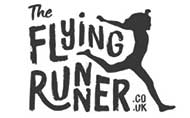Menu
Some of the wisest running advice comes from some of the sport’s most respected achievers and they express great wisdom very simply. Here are some basics:-
Make the hard days hard and the easy days easy – Jon Brown, UK 10,000metres recordholder and twice 4th in the Olympic Marathon. In many groups the harder structured sessions can fall slightly short of reaping the full intended benefits, whilst the supposed recovery running may be done too fast to really enable effective recovery, thus runners can get into a cycle of too much ‘middling’ effort running.
Newer runners should mostly be running more often than they think they should and less distance each run than they think they should. The late Cliff Temple, coach to some world class runners and leading journalist. Keen new runners seeking to improve should look to progress fairly quickly to running 4 or 5 days per week but typically only two of these runs need be much more than 30-35 minutes. Too many recreational runners run too infrequently and each run is too long to maximize the training effect of such infrequent training.
Too many runners don’t do longer repetition running with short recoveries – Paula Radcliffe, world record holder and world champion at the marathon. For many runners, ‘speedwork’ is not carried out in a suitable structure particularly if they are training for races of 10k and longer. The trend is often that the faster running is too fast and the recovery period too long to really make the most suitable training for their target races.
It's the last third of each hard training session that makes the performance difference - Jim Harvey, coach to Mark Carroll, Irish 3k and 5k record holder and one of the world's fastest non-Africans. It's a good point, and requires the coach and athlete to be confident that whatever is the full session is the suitable balance of volume, speed and, if it's any sort of repetition running, recovery

